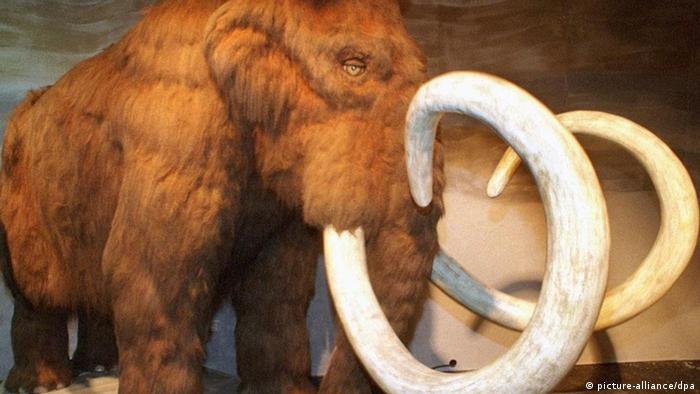Russian scientists say a prehistoric mammoth carcass still containing liquid blood and red muscle tissue could be the key to cloning the extinct Ice Age mammal. The female was found recently on a remote Siberian island.
Scientists at Russia's North-Eastern Federal University say their hopes of producing a living clone from a frozen mammoth have risen with the discovery of a well-preserved female mammoth on the Lyakhovsky Islands off Siberia.
Expedition leader Semyon Grigoryev said dark blood was found in ice cavities just below the belly of the mammoth. Fragments of muscle tissue had the natural color of fresh meat, he added.
The researchers had collected the samples of the animal's blood in tubes with a special preservative agent, he said. They were sent to Yakutsk for bacterial examination in order to spot potentially dangerous infections.
"This find gives us a really good chance of finding live cells which can help us implement this project to clone a mammoth," Grigoryev said. "Previous mammoths have not had such well-preserved tissue."
He said the female aged around 60 died between 10,000 and 15,000 years ago.
"The forelegs and the stomach are well preserved, while the hind part has become a skeleton."
Deal with South Korean center
Last year, Grigoryev's team signed a deal with cloning pioneer Hwang Woo-Suk of South Korea's Sooam Biotech Research Foundation, who in 2005 created the world's first cloned dog.
Wooly mammoths weighing up to 10 tons roamed huge areas between Britain and North America before dying out around 10,000 years ago. Scientists think small groups of them lived longer in Alaska and on islands off Siberia.
Global warming has thawed ground in northern Russia that is usually almost permanently frozen, leading to the discoveries of remains.
Last year, a teenager from a nomadic family in Russia's north stumbled upon a massive well-preserved woolly mammoth in what scientists described as the best such discovery since 1901.
--
__._,_.___

No comments:
Post a Comment